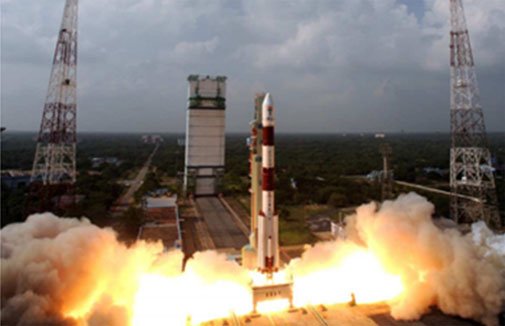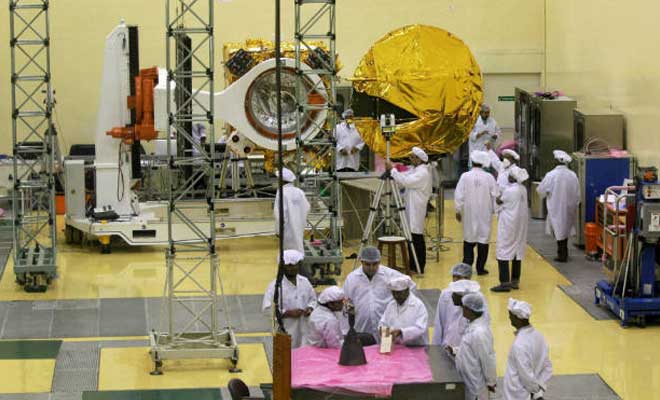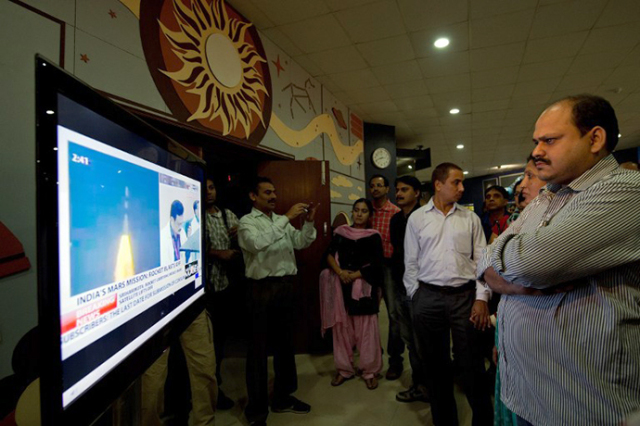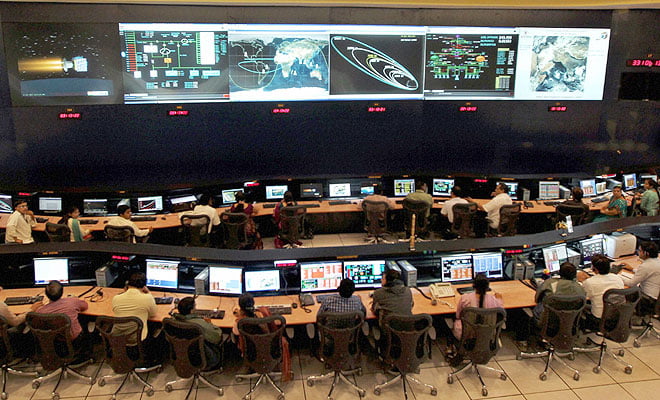The success of the Mars Orbiter Mission (Mangalyaan), launched in November last year has made ISRO the first organization and India the first nation to achieve such a feat in the first attempt itself. Thanks to the Cold War between US and USSR, we have all come up to realize how space travel and exploration is tied to a nation’s glory and prestige. Hence, it will be no exaggeration to say that this 24th of September, India has made a historic accomplishment by being the first Asian nation to launch a satellite in the Mar’s orbit. For more than one reason today’s date is an important one for India since this one success will lead to multiferous impacts in the future ahead . A developing nation, fighting against a number of social issues and working hard to create a place in the international arena, the most expected and possible changes coming up are-
1. Rivalry with China :
Like the USA-USSR Cold War, India and China too have exhibited a pseudo waresque relationship (especially after the unfortunate war of 1962). Keeping in mind not only the border issues, but also the fact that China continues to undermine India and using it as dumping ground for its cheaply produced goods, it is of no surprise that our success is not going down well with our “CHINI BHAI(S)”. There have been indirect comments and reassurances in China claiming that their nation is in fact more advanced than India in this particular field. ISRO’s chief scientist K. Radhakrishnan in relation to such rumours said , “We are in competition with ourselves, in the areas we have charted for ourselves “. However, The Global Times (a press in Beijing) wrote that China “has already been in advance of India” and that China “has no choice” but to invest more in its own space exploratory abilities “in front of an India that is striving to catch up with China.” With national newspapers in China reporting things like this, the rumours that China is nothing short of “crazy with jealousy” at India’s feat (especially after their last failed attempt with Yinghuo-1 in 2011) wouldn’t be that baseless.
2. The Asian Space Race:
Completing the work on the satellite in a record 15 months and a low budget of $73 millions aren’t the only records India is set to break. With this success, India has become the first Asian nation to have successfully launched a satellite in the Red Planet’s orbit. China and Japan, both had launched similar projects years before India had even begun working on it. But both failed due to technical issues. This will, hence, prove to be a major boost for India’s and the Indians’ confidence. India has anyways been making it’s presence felt in almost all major sectors in the world. This might just be “the” push India needs to get there, to finally prove itself as a worthy contender for the world’s next super power!
3. Guns vs Bread :
In a developing nation as India, any spending on technological and scientific exploration draws flak from critics. People always complain about the Government spending millions which could have otherwise been used for social issues (even though, like I mentioned, Mangalyaan was developed on a very small budget when compared to the global standards). However, this particular mission will bring relief to the millions of Indians affected by sporadic weather conditions and frequent natural disasters and also improve telecommunication. Hoping to solve all such issues, this mission hence aims to moves beyond the questions of opportunity costs and the “guns vs bread” argument.
4. Military leverage:
Technological innovation in today’s times always has some military leverage. To defend one’s claim as a super power, any nation would need to have a strong military back up. For India this goes beyond just power-game. Faced with continuous border issues with two of its neighbouring nations, military prowess becomes a must to continue to have an upper hand. Mangalyaan’s success will definitely have some impact on our defensive strategies. India’s National Satellite System had led to the formation of the Integrated Missile Development Program. The development of inter-continental ballistic missile named ‘Agni – V’ can be credited to the close relation between science and defense. Hence, with Mangalyaan’s success India’s long range military potential can be and should be explored. The most obvious benefit to the army would be by overlooking any threats from other nations. This is also one of the causes behind China’s wariness of India’s probable success of the Mar’s mission.
5. Inclination towards science :
If nothing else, the success of Mangalyaan will certainly develop immense interest for science in the Indian hearts. India is already producing a huge number of scientists and professionals each year. An article described this mission as “India’s alter ego in space” because it will act as a fuel, a driving force to re-affirm Indian’s love for science. This might even give more incentive to Indians to enter into this field and work for their nation (instead of NASA). “It will be a validation that Indian research and development has come of age,” Amitabh Ghosh, an Indian-born planetary scientist based in the US, said. Here too, it wouldn’t be wrong to point out how there has always been an intelligence race between China and India. Each year there are fresh lists to compare the percentage of Chinese and Indians in the Ivy Leagues. Both the nations have gone to great extends to prove their intellectual superiority. The success of India at a place where the Chinese have badly failed might cause some interesting change in the already interesting dynamics we share, one that we definitely should look forward too. Not just China, Japan being the unquestioned king of modern technology too might suffer from a hurt ego. Hence, the coming up years might just become a battle ground for the students to prove their worth and make their nations proud.
Looking at all such possible changes coming up, Mangalyaan is no longer just a Space Mission for India. It is a race which India cannot afford to lose, for there is too much at stake. But for now, after this immense success all we can do is wait and see how India rises up to the growing expectations of not just the world but of it’s own citizens as well!





































